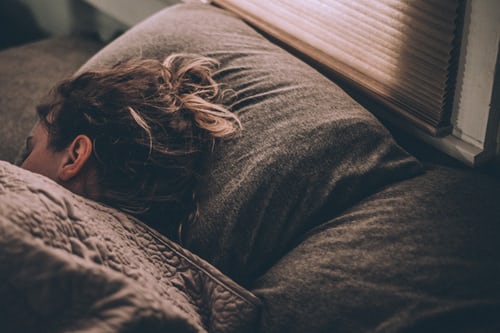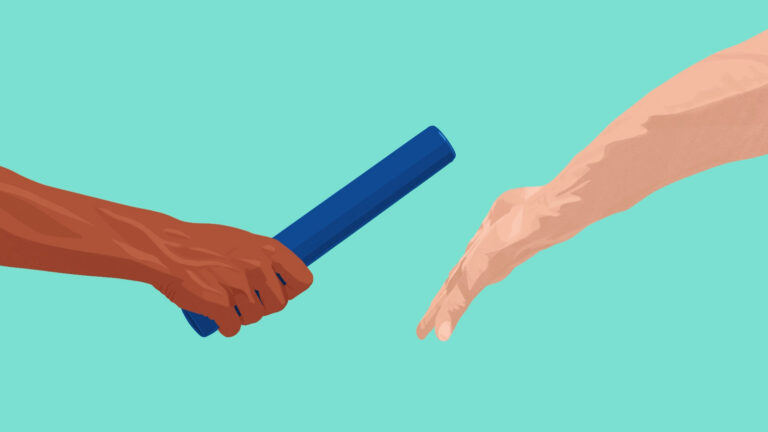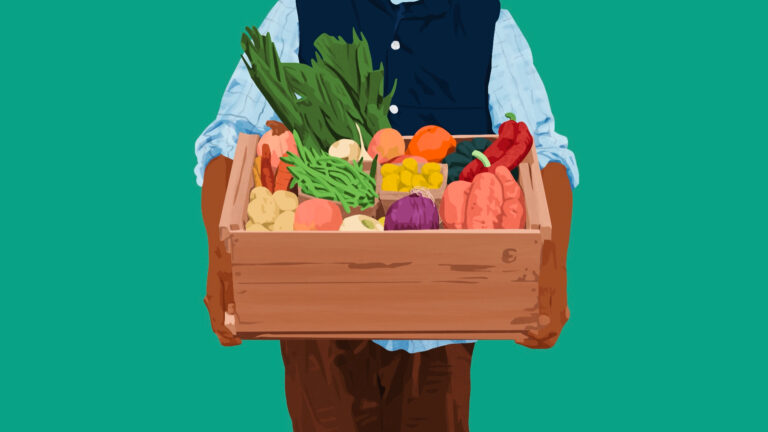In our always-on society, sleep has become a luxury. For some, burning the midnight oil is worn like a badge of honor. But increasingly, the pendulum is swinging from staying up to shutting down.
The problem:
- One-third of US adults don’t get enough sleep.
- Sleeping 6 hours or fewer results in a 13% higher mortality rate.
- Lack of sleep costs US businesses $411B each year.
What’s happening: As concerns related to burnout and mental health grow, while mindfulness goes mainstream, sleep is emerging as a billion-dollar pillar of the wellness economy.
Turndown Service
Mattress startups and meditation apps have something in common: they’re both selling sleep.
While bed-in-a-box companies started with mattresses before expanding into pillows, night lights, and CBD gummies, mindfulness upstarts like Calm are now attempting to corner the market on bedtime stories.
Whether or not you meditate or get a mattress delivered to your front door, the growth of these verticals has validated and broadened the burgeoning sleep economy.
The Sleep Economy
From bedtime elixirs and sleep tracking tech to comfy bedding, sleep aids generated $69.5B in 2017. By 2023, that number is expected to hit $101B.
Surveying the landscape, the sleep economy breaks out across three categories: ambience modification (bedding, lighting, and temperature control), routine modification (think sleep monitors or meditation apps), and therapeutic treatment (like prescription or over-the-counter pills and sleep apnea devices).
In 2017, TechCrunch reported north of $700M in investment flowing to sleep-related startups. In the time since, interest in and investments into the space have produced products intended to help us fall asleep, stay asleep, or improve the quality of sleep.
The Sleep Stack
Going beyond DTC mattresses, and Casper’s less-than-stellar IPO, sleep-focused companies and products are revolutionizing the sleep stack.
Smart beds: Eight Sleep’s smart mattress ($70M in funding), chiliPAD’s temperature-controlled mattress cover, and Beddit’s under-the-mattress sleep monitor (acquired by Apple) are upgrading the regular old bed.
Wearables: WHOOP’s wrist-worn tracker ($100M in funding), the ŌURA ring ($20M), the Dreem headband ($57M), and upstarts like Beddr ($5.6M) are taking a data-driven approach to sleep improvement.
Bedding: Boll & Branch raised $100M for sustainably sourced sheets. Parachute raked in $45M for bedding essentials. And sleep accessories like weighted blankets and the OSTRICHPILLOW have done millions in sales.
Consumables: Melatonin will be a $2B market by 2024. Recently, Remrise raised $8M for plant-based sleep aids. And supplement manufacturers like Vital Proteins, The Nue Co., and Moon Juice are using functional ingredients in concoctions to enhance sleep.
Apps: Calm and Headspace want to corner the market, but Sleep Cycle, Pzizz, and Pillow are giving chase. Of note, searches for “sleep app” exceed those for “meditation app”, so expect the competition to intensify.
Therapeutics: Medical devices are booming alongside the consumer sleep market. By 2025, the sleep apnea device market will reach $9.5B. Count Philips Respironics and ResMed among other billion-dollar companies in the space.
The Future of Sleep
According to Eight Sleep CEO Matteo Franceschetti, who is set to appear on an upcoming episode of the Fitt Insider podcast, his company is the “Peloton of sleep”.
With $70M in funding, Eight Sleep has created a smart mattress known as The Pod, featuring dynamic cooling and heating, detailed sleep tracking, and sleep coaching. While the queen size model sells for $2,495 and the king commands $2,795, there’s also a $240/year digital subscription for in-depth analytics, meditation content, and more.
Taking the Peloton reference a step further, Franceschetti told TechCrunch that his smart mattress startup could actually be bigger than the connected fitness company: “Our total addressable market is by definition bigger… everyone sleeps, right?”
Sleep-as-a-Service
Not sleeping is not an option. And now that the mental, physical, and economic costs of not sleeping are clear, getting some shut-eye is finally getting the attention it deserves.
As consumers seek out solutions for optimizing and enhancing sleep, the creation of new products, technologies, and companies will fuel the billion-dollar sleep economy. At the same time, and perhaps more interestingly, the cultural shift away from hustle culture and toward a sense of work-life balance could help foster a culture of sleep.
While employers have long paid lip service to corporate wellness, concerns around mental health have made Corporate America ground zero for addressing stress, burnout, and depression. Similarly, as a lack of sleep proves to be detrimental to the bottom line, creating a sleep-first culture will prove to be a worthwhile investment.
Two things: One, expect to hear more about sleep as a business issue. And two, whether you start, invest in, or pivot to sleep-as-a-service for employers, the iron is hot.
While you’re here: This trend aligns with the broader desire to disconnect and an uptick in time spent outdoors.
👋 Fly At Home Folds
Flywheel Sports is shutting down its at-home business, including hardware (the bike) and digital services (streaming and on-demand classes).
How we got here: A few weeks back, Peloton and Flywheel Sports settled a legal dispute over alleged technology theft and patent infringement.
- The verdict: Flywheel acknowledged that it copied Peloton’s leaderboard technology. As part of the settlement, Flywheel agreed to pull the technology from its bikes within 60 days.
- The fallout: Flywheel’s admission of wrongdoing has proven to be the end of its at-home business — the company will stop offering virtual classes in late March.
In an email announcing the news to members, Flywheel also said “You will receive an email directly from Peloton shortly” with details about an exclusive offer. That offer, as it turned out, was the opportunity to trade in the now-defunct Flywheel At Home bike for a Peloton.
Between the lines: All signs point to some backroom dealings stemming from the Peloton vs. Flywheel litigation.
It’s no secret that Flywheel had fallen on tough times. When lenders seized control of the company in May 2019, the outcome seemed clear: Flywheel was destined for a fire sale.
While Town Sports scooped up the studios, when no buyers emerged for the at-home business, Peloton saw an opportunity. While this is speculative, it sure seems like Peloton “bought” Flywheel’s at-home business and preceding admission of wrongdoing in the patent dispute.
For its part, Flywheel cut its losses and closed up shop. Meanwhile, Peloton defended its patent and converted some former Flywheel riders.
The big picture: In the end, Peloton’s real victory is Flywheel’s admission of wrongdoing that it will surely try to leverage against other players in the connected fitness space.
😅 Re-doing Things
Outdoor Voices founder and CEO Tyler “Ty” Haney has stepped down as the activewear brand attempts to find its footing.
What we know: According to the Business of Fashion, mounting losses, sluggish growth, and a revolving door of top executives contributed to the shakeup.
- In 2019, OV was losing $2M/month with annual sales of $40M.
- Nike and Under Armour vet Pamela Catlett joined, then exited OV within months.
- Mickey Drexler resigned as chair of the board over concerns about the business.
- OV’s colorblock leggings and Exercise Dress we’re a hit, but the brand has yet to gain mass appeal.
Zooming out: Outdoor Voices had previously raised $60M in funding. And Haney’s departure follows an injection of new capital from existing investors, including General Catalyst and Forerunner Ventures, at a lower valuation than past rounds.
Looking ahead: Board members and investors told BoF that they still believe OV can find success. Of course, they kind of have to say that. For now, venture dollars will have to subsidize the restructuring.
📰 News & Notes
- A thread: Is ClassPass sustainable?
- Owning a car is bad for your health.
- The “world’s first” productivity drink.
- Learning to run without headphones.
- F45 and APL joined forces on a custom shoe.
- A new concept combines streaming fitness and red light therapy.
⭐️ Star Search
- Simple Mills is hiring a VP of Innovation.
- Siete Family Foods is hiring a Food Technologist.
- Peloton is hiring a VP of Product Software Engineering.
- Rumble is hiring a General Manager for the West Coast.
- Magic Spoon is hiring a Strategy and Consumer Insights Lead.
- Ro, makers of Roman, Rory, and Zero, is hiring a VP of Marketing.
💰 Money Moves
- Maven, a women’s and family health startup, raised a $45M Series C round. More from Fitt Insider: Women’s Health Revolution
- Lucy, a startup creating safer nicotine products, closed $10M in Series A funding.
- Acne patch brand Starface picked up a $2M investment from BBG Ventures.
- Ikaria, a chat app described as a “healthier alternative to social media”, raised a $1.5M seed round led by Initialized Capital and Fuel Capital.
- Canned water company Liquid Death secured a $9M investment.
- The Clean Liquor Co, a low-/no-alcohol beverage company, raised a $2M seed round led by Lightspeed Venture Partners. More from Fitt Insider: The Rise of Mindful Drinking
- Second Nature, a weight loss and behavior change app (formerly known as OurPath), secured $10M in funding.
- Lullaai, an AI assisted baby sleep app, received new funding from BSH Future Home Accelerator, powered by Techstars.
- Beijing-based VIPFIT, an online personal training platform, closed a CN¥10M (~$1.42M) Series A round.
- India-based Oga, a streaming fitness company, raised a $330K seed round from Inflection Point Ventures.
- Nautilus, the fitness equipment manufacturer, secured a $70M credit facility to support the growth of its digital platform and connected fitness products.
- brekki Overnight Oats was acquired by members of Cedar’s Foods executive team.
- Dean Foods reached a $425M deal with Dairy Farmers of America to sell off a significant portion of its business as part of a court-supervised sale of company assets. More from Fitt Insider: The Downfall of Dairy and The Plant-based Future






